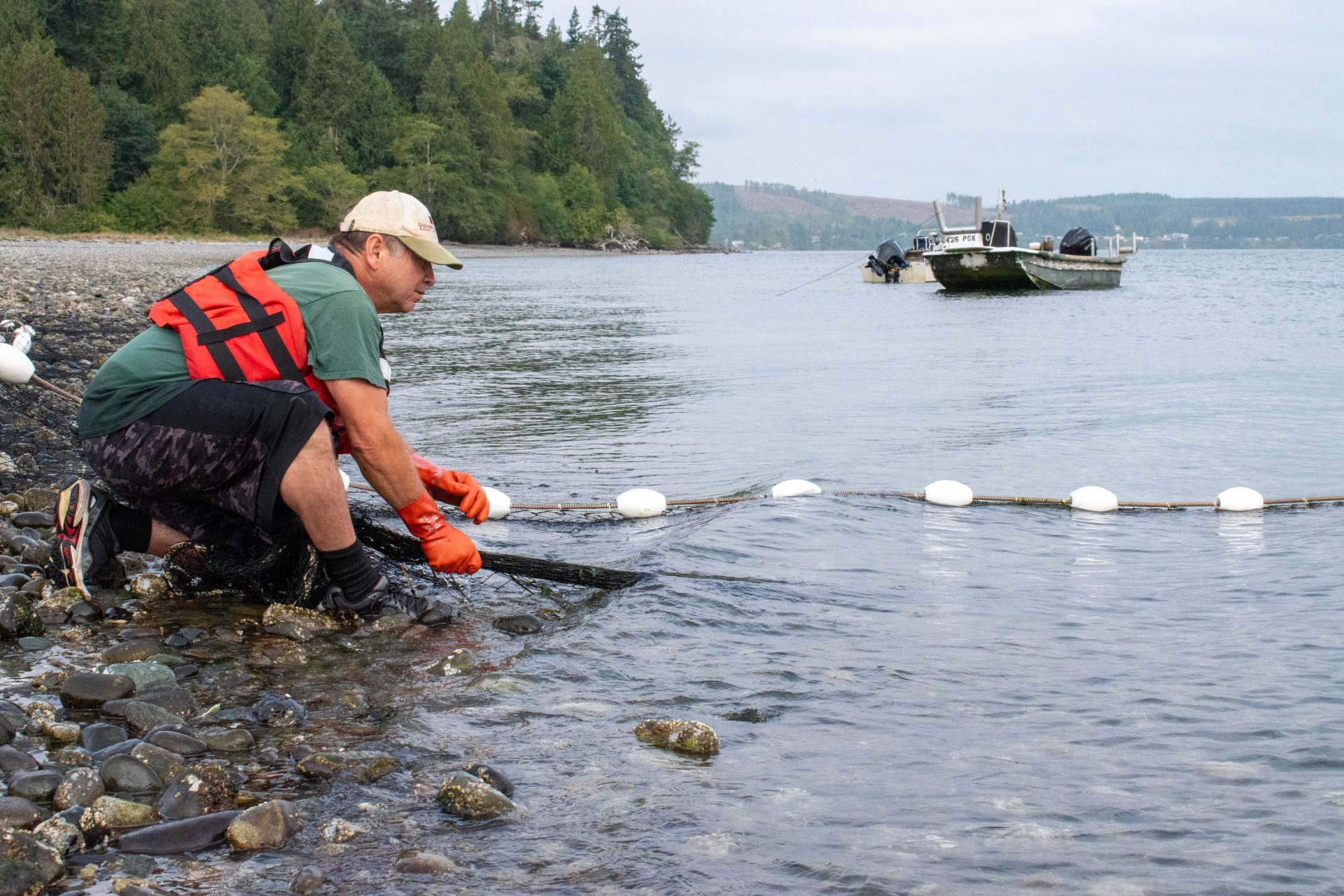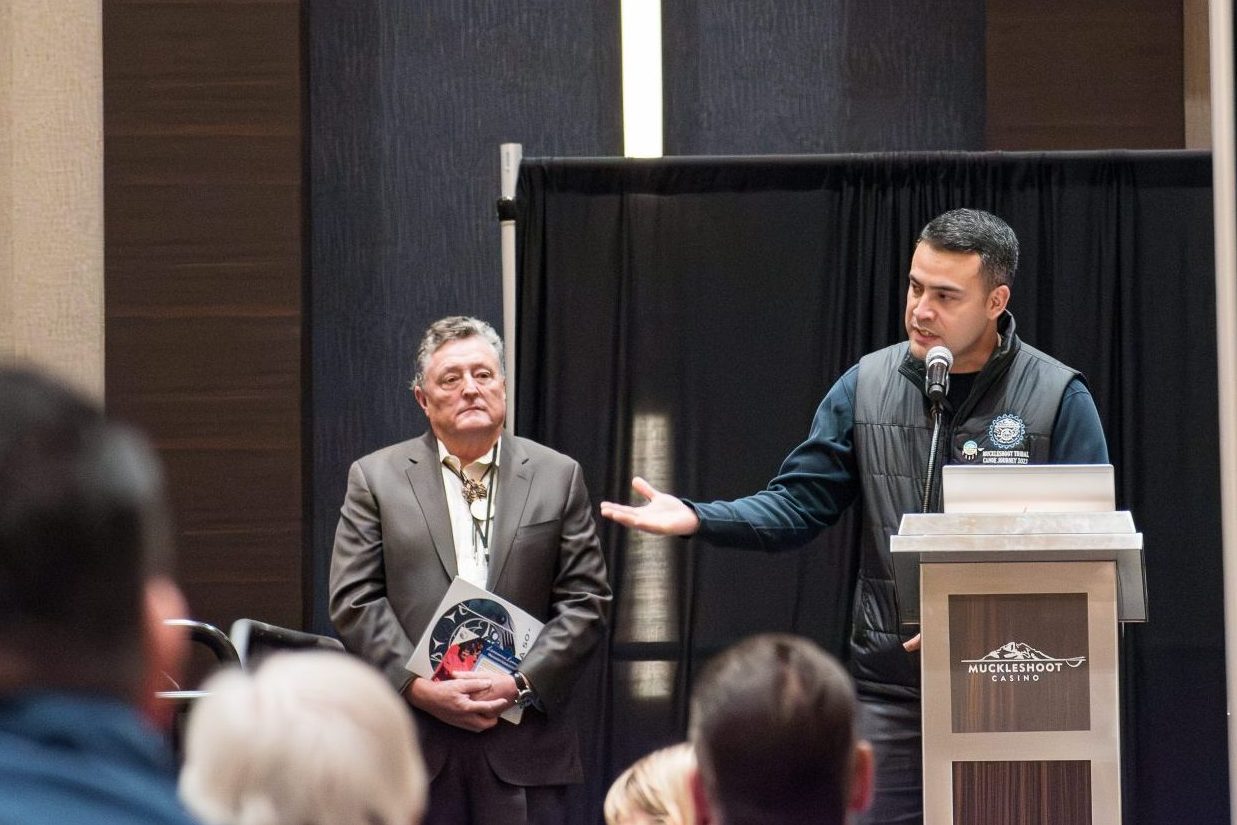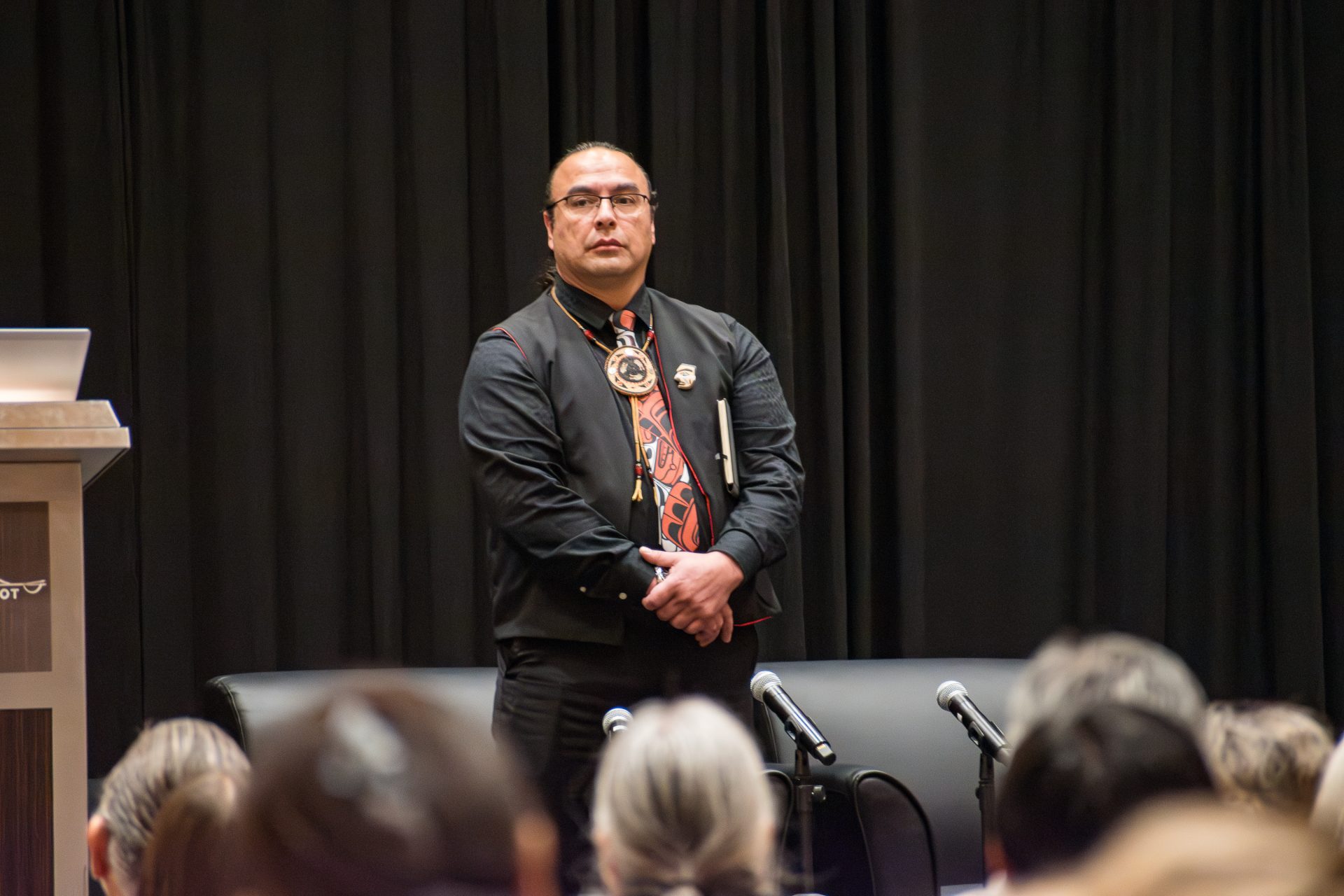NEAH BAY (Dec. 20, 2002) — The Makah Tribal Council is deeply disappointed by the today’s ruling of a three-judge panel the Ninth Circuit Court of Appeals in Anderson v. Evans. The panel’s ruling is a major defeat for the Makah Tribe and Indian people throughout the Pacific Northwest. Not only did the panel require an Environmental Impact Statement before the Makah Tribe’s subsistence whale hunt can resume, the panel decided that the requirements of the Marine Mammal Protection Act take precedence over the Makah Tribe’s treaty right to hunt whales under the 1855 Treaty of Neah Bay.
The panel’s ruling has implications that go well beyond whaling. The panel’s decision calls into question a fundamental principal of the Boldt decision, that Indian treaty rights may only be regulated if the exercise of treaty rights poses an actual threat to the conservation of natural resources. In a reversal of the Boldt decision, the Ninth Circuit has held that the Marine Mammal Protection Act applies to the Tribe even though the Tribe’s proposed harvest of five whales per year poses no obvious threat to the gray whale population. The gray whale was removed from the Endangered Species Act list in 1994 and numbers over 17,000. The Tribe has actually taken only one whale over the past five years.
The Makah Tribe is deeply concerned about the effect of this ruling on its Treaty fishing rights and the Treaty fishing rights of all Indian tribes in the Northwest. The Tribes have carefully managed their fisheries and have been at the forefront of regional efforts to protect salmon and their habitat. Nevertheless, many runs of salmon have been listed as threatened and endangered under the Endangered Species Act due to widespread destruction of salmon habitat by non-Indian development. Today’s ruling may lead to new, draconian restrictions being imposed on Tribal fishing notwithstanding the Tribe’s treaty rights and regardless of the actual impact of the Tribal fishing on the resource.
The Makah Tribe believes that the panel’s ruling is out of the mainstream of 30 years of judicial decisions interpreting the Stevens Treaties, including Judge Boldt’s 1974 decision in U.S. v. Washington. The Tribe intends to seek review of this decision before a larger “en banc” panel of the Ninth Circuit, and if necessary to the United States Supreme Court.
-End-
For More Information, conact: Debbie Preston, Coastal Information Officer, Northwest Indian Fisheries Commission, (360) 374-5501.




